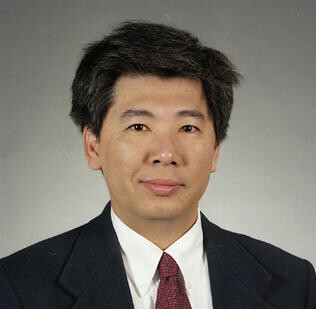Page 42 • (637 results in 0.04 seconds)
-
. Prerequisite: ESCI 201 or consent of instructor. (4) ESCI 327 : Stratigraphy and Sedimentation Formational principles of surface-accumulated rocks, and their incorporation in the stratigraphic record. This subject is basic to field mapping and structural interpretation. Includes labs. Prerequisite: ESCI 201 or consent of instructor. (4) ESCI 331 : Maps: Computer-Aided Mapping and Analysis Computer-based Geographic Information Systems, digital maps, and data sources. The creation, interpretation, and
-
Training II - CX Continuation of MUSI 125. Prerequisite: MUSI 125 or consent of instructor. (1) MUSI 133 : Music Theory & Analysis IA Introduces basic underlying elements of music theory: reading and notating music, key signatures, intervals, chords, scales, etc. Previous music-reading experience highly recommended, but not required. (2) MUSI 135 : Music Theory & Analysis IB A continuation of MUSI 133. Minor scales, intervals, triads, diatonic 7th chords, basic analysis, etc. (2) MUSI 136 : Music
-
works out well. “He provides a tremendous amount of perspective and dispassionate analysis because I’m so deeply involved,” Dean says. “He balances me out. He’s passionate, fearless and energetic. He’s optimistic with a good head for business and a really good heart.” With 47 rooms that can still be worked on in the vicinity around Raw Space, Sean and Dean hope to develop this currently unused property into other art spaces. Their goal is to keep expanding and to one day be a self-sustaining
-
Equitable Assessment PracticesIn keeping with PLU’s access, recruitment, and retention goals, we must expand our understanding of “effectiveness” in assessment to include equity-centered assessment practices. According to Montenegro and Jankowski (NILOA 2020) equity in assessment relies on three changes in how we think about data collection, analysis, and action: Assessment should be culturally responsive, meaning it should be mindful of context and the various student populations being served
-

Change, Technology Analysis and Strategic Management, Internet Research, International Journal of Services Technology and Management, Competitiveness Review, Journal of International Technology and Information Management, and the International Journal of Technology Transfer and Commercialization. Dr. Lee is a member of the editorial board of the Technological Forecasting and Social Change (Elsevier), International Journal of Innovation and Technology Management (World Scientific Publishing), Journal
Area of Emphasis/Expertise -
of Religion (RL) (4): Students will engage in critical and empathetic analysis of religious traditions. Fitness and Wellness (FT) (2): Students will develop skills for lifelong physical and mental wellness. Global Engagement (GE) (4): Students will learn about the factors that shape human experience in transnational, cross-cultural, or non-US contexts. Study away and world language courses with these emphases will also meet this requirement. Global Engagement is the second course in the PLU
-
information to support definition of requirements for tools, equipment, materials, parts and processes used in the manufacture and engineering design of products. Incorporates changes to specifications and other documents to manage the deployment of materials, parts and processes. Performs tests to qualify new tools, equipment, materials, parts and processes to meet requirements. Assists with activities to qualify suppliers to applicable requirements. Conducts basic analysis to determine performance or
-
integrate information from a wide range of connected topics such as chemistry, biology, physics, and geography. In this light, geoscientists have a particularly flexible professional skill set that is founded in core analysis and interpretation skills developed in the field and laboratory. Successful students must be able to think three dimensionally, have strong quantitative skills, and be able to communicate clearly through writing and speaking. Field trips are included in most courses.Quick Links My
Department of Earth Science253-535-8700Rieke Science Center Room 158 Tacoma, WA 98447-0003 -
to work closely with faculty in classes, laboratories, and field studies. Faculty members are available to work individually with students in small seminar groups and on research projects. Located in the Rieke Science Center, the Department of Earth Science has well-equipped classroom spaces and laboratories to support student and faculty research. Equipment includes a research-grade Zeiss scanning electron microscope (SEM) with an elemental analysis detector (EDS), a Geographic Information
-
own essential questions, but the instructor should have a pre-established set of questions to guide students’ study and inquiry. McTighe and Wiggins (2013) say a good essential question: 1. Is open-ended; that is, it typically will not have a single, final, and correct answer. 2. Is thought-provoking and intellectually engaging, often sparking discussion and debate. 3. Calls for higher-order thinking, such as analysis, inference, evaluation, prediction. It cannot be effectively answered by recall
Do you have any feedback for us? If so, feel free to use our Feedback Form.


